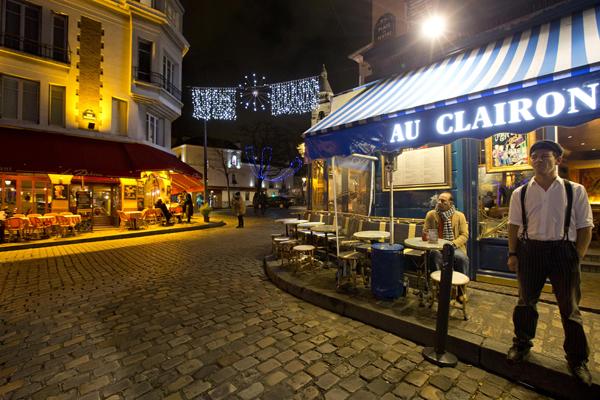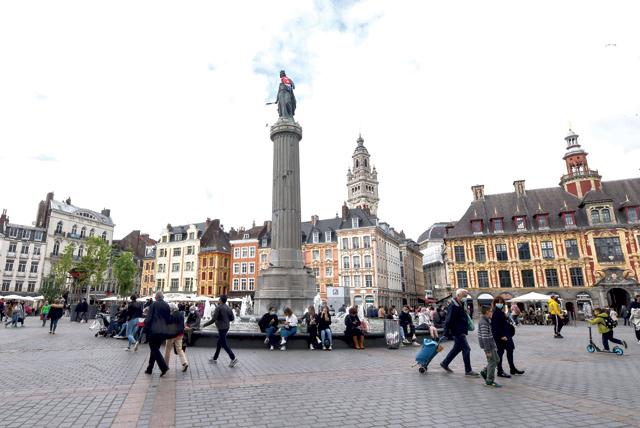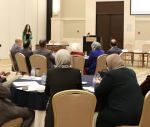You are here
Two cities
By Nickunj Malik - Nov 18,2015 - Last updated at Nov 18,2015
As I watched horrific pictures of the terrorist attack in Paris unfold on my television screen, my thoughts went back to a similar carnage that happened in my home country a few years ago.
On November 26, 2008, Mumbai was brought to a standstill in one of the deadliest extremist assaults on Indian soil. One hundred seventy-one people died in a standoff between the police and ten heavily armed militants. The siege of the city lasted for over three days in the heart of India’s financial capital.
Last weekend, I had just returned to Amman from Mumbai after a short visit there. I was, in fact, staying at the same hotel where the terrorists had stormed in, seven years ago. The similarity in the bloodbath that occurred in the two cities Paris and Mumbai is eerie. Quite like the Bataclan concert hall where Eagles of Death Metal performed in Paris, the night when terrorists targeted the 1,500 capacity venue as part of a series of organised terror attacks, Mumbai’s attention, on that particular evening, was focused on one of the country’s favourite sports: cricket.
India was playing against England, and beating its old colonial master. At about 9:30pm, two gunmen with assault rifles appeared on the sidewalk. One stood at the entrance, the second to his left. Then they started firing. Minutes later, they walked away, leaving more than a dozen casualties behind amid upturned, bloodied tables.
In Paris, gunmen armed with Kalashnikovs targeted three busy restaurants and a bar. Around forty people were killed as customers were singled out at venues including a pizza joint and a Cambodian diner. The other target was a stadium in France, on the northern fringe of Paris, where President Hollande and 80,000 other spectators were watching a friendly international between France and Germany. The president was whisked to safety after the first explosion just outside the venue. Three attackers were reportedly shot there.
In Mumbai the assailants landed by sea in a hijacked fishing trawler. They struck at a crowded railway station, a few restaurants and a hospital, and then, in a coordinated spate of attacks, seized two five-star hotels, taking hostages. Military commandos later stormed these places and began a battle with terrorists that transformed the city into a war zone for sixty hours, as live television footage of the shootout was beamed around the world. Fifty-two people died in one hotel while thirty-eight died at the other one.
While checking-in at one of those hotels earlier this month, there was not a sign of the unfortunate tragedy that had occurred there previously. The resilience of the human spirit had ensured that on the surface at least, everything was back to normal. But the psychological and emotional scars that we carried resurfaced with the Paris incident, and I found myself instantly uniting with the French in their grief. Like I had united with the Pakistanis when there was a shootout in a school in Peshawar, with the Lebanese when there were serial bombings in Beirut last week, and so on.
Talking to one of the survivors in Mumbai was an eye-opener.
“A guy burst in with a machine gun. He was in western dress, wearing jeans,” the American singer of the hotel band recalled.
“Then what happened?” I asked.
“He told everybody to put their hands up and asked if there were any British or Yankees,” he continued.
“What did you say?” I was curious.
“I am alive, aren’t I?” he smiled.
Related Articles
PARIS – France can withstand the financial shock of the Paris attacks, analysts say, despite people deserting big stores, shunning concert h
ISLAMABAD — The Palestinians have recalled their ambassador to Pakistan following an Indian protest over his appearance at a rally also atte
PARIS — The French returned to their beloved cafe terraces Wednesday, while the EU said it would open its borders to vaccinated travellers a


















